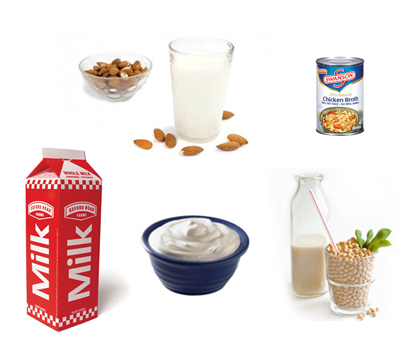UHT processing
Definition
UHT processing, or ultra-high temperature processing, is a method of sterilization of food that reaches higher temperatures held for less time than conventional pasteurization. It is most commonly used for packaging milk in aseptic containers, allowing them shelf-lives of months rather than days. UHT processing is also used for juice, cream, non-dairy milks, soups, broths, and wines in aseptic cartons.
Health considerations
The UHT process can result in micronutrient losses, however typically in the range of less than 20% of the content in comparable, pasteurized items. Some alteration of protein structure can occur, but this does not affect nutritional quality and can increase the body’s retention of protein. The UHT process significantly reduces chance of microbe contamination as it is rapidly heated and cooled then packaged in a closed system.
Keep in mind
Flavor may be different, as the high temperature can cause Maillard reactions, akin to caramelization, in the product. Once opened, UHT milk has a similar fridge-life to pasteurized milks.
May be found in
Shelf-stable cartons of milk, cream, non-dairy milk, soups, broths, wine, juice, etc.


